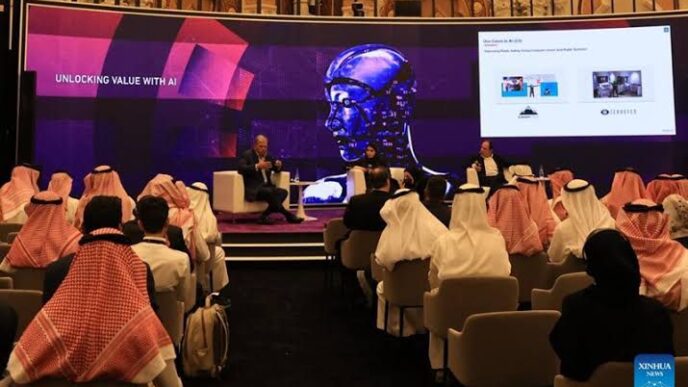The Micro, Small, and Medium-scale Enterprises (MSMEs) are vital to economic growth, innovation, and employment. Yet, they face several hurdles that can stifle their potential. This paper considers these hurdles, providing a comparative analysis of solutions from specific developed and African countries. By comparing successful strategies and initiatives from nations like Germany and Kenya, or Sweden and Ghana, it sheds light on practical, adaptable solutions that can empower emerging businesses across the globe. Whether grappling with access to finance, market competition, or technological infrastructure, understanding these diverse approaches will offer entrepreneurial ventures actionable insights to navigate their unique challenges and drive sustainable growth. Some of these bottlenecks include:
Access to Finance (the Lifeblood of a business)
For MSMEs, access to funding is an important determinant of success and sustainability. At its foundation, financing encompasses the ability of these businesses to secure the funds necessary to start, operate, and grow. This includes getting loans, credit lines, grants, or equity investments, which are crucial for covering operational costs, investing in new technologies, expanding market reach, and navigating financial roadblocks. For small organizations, which often operate with limited capital and face higher risk profiles, access to affordable and reliable financial resources can mean the difference between thriving and struggling. It helps them to innovate, scale operations, and remain competitive in increasingly complex markets. On the other hand, difficulties in accessing finance can limit growth, hinder operational flexibility, and hamper the ability to capitalize on new opportunities. Understanding how different countries tackle these challenges offers valuable insights into effective options for improving financial access and empowering emerging organizations to achieve their full potential.
Furthermore, in Germany, MSMEs benefit from the support of the KfW Bank, a state-owned development bank, that plays a pertinent role in providing financial assistance to small and medium-sized businesses. The Bank offers a variety of financial products tailored to the needs of small businesses, including low-interest loans, grants, and guarantees. For instance, the KfW “Entrepreneur Loan” provides long-term loans with favorable conditions, enabling businesses to invest in growth and innovation. This financial support is complemented by advisory services to help entrepreneurs manage their finances effectively and navigate the complexities of funding. The structured and reliable financial backing from KfW Bank has been instrumental in ensuring that German MSMEs can access capital at a manageable cost, thus promoting a robust and resilient business environment.
Advertisement
Similarly, in Kenya, the financial inclusion landscape for small businesses has been changed by mobile banking platforms like M-Shwari. M-Shwari, developed in collaboration between Safaricom and Commercial Bank of Africa, offers financial services directly through mobile phones. This platform provides microloans and savings accounts, bypassing the need for traditional banking infrastructure, which is often sparse in rural areas. Through the platform, Kenyan emerging organizations can access small-scale loans swiftly and efficiently, using mobile money’s seamless integration with their daily transactions. This innovation has remarkably lowered barriers to financial access, empowering SMEs to secure the requisite funding for growth and operational stability. The success of mobile banking in Kenya demonstrates a practical and scalable solution for improving financial access in regions where conventional banking systems are limited or non-existent.
By considering these approaches, we see that while Germany’s solution revolves around established financial institutions offering comprehensive support, Kenya’s strategy leverages mobile technology to bridge the gap in traditional banking. Each caters to the specific needs and conditions of their respective markets.
Market Access and Competition
Advertisement
Market access involves overcoming barriers to reach and sell to potential customers, locally or internationally, and includes hurdles like limited distribution channels and regulatory hurdles. Competition necessitates small businesses to differentiate their products or services and adapt to market dynamics, driving innovation while posing risks from more established rivals. Successfully navigating these aspects requires strategic planning and often support from external resources to expand market reach and effectively compete.
In the United States, the Small Business Administration (SBA) enhances market access and competitiveness for MSMEs. One of its notable initiatives is the Small Business Innovation Research (SBIR) program, which provides funding and support for innovative projects. This program helps emerging organizations develop cutting-edge technologies and solutions by offering grants and contracts that promote market entry and expansion. Through SBIR, businesses access federal research and development funds. This can be leveraged to explore new markets, refine products, and scale operations. Additionally, the SBA provides a wealth of resources, including mentorship and networking opportunities, to help businesses navigate the complexities of market competition and establish a strong foothold in their respective industries.
In like manner, in Nigeria, market access and competition are tackled by the Nigerian Export Promotion Council (NEPC), which focuses on improving the global presence of Nigerian MSMEs. The NEPC offers support services designed to help businesses enter and compete in international markets. This includes export training programs, market research, and assistance with regulatory compliance. The NEPC’s initiatives also encompass financial incentives, like export subsidies and trade facilitation services. These reduce the barriers to entry for Nigerian emerging businesses. By equipping organizations with the knowledge and resources needed to navigate global markets, the NEPC enables Nigerian MSMEs to overcome competition and seize international opportunities. The NEPC’s efforts illustrate a strategic approach to market access that combines education, financial support, and practical assistance to bolster the global competitiveness of Nigerian enterprises.
These examples show contrasting yet complementary approaches to improving market access and competition. In the U.S., the focus is on leveraging innovation and federal support to foster growth and market penetration, while in Nigeria, the emphasis is on export promotion and market readiness to overcome global competition. Each approach reflects the unique challenges and opportunities within their respective contexts, offering valuable lessons for emerging businesses worldwide.
Advertisement
Regulatory Compliance
In Canada, navigating regulatory compliance is majorly streamlined through the services provided by the Business Development Bank of Canada (BDC). The BDC offers comprehensive advisory services that guide small organizations through the complex landscape of regulatory requirements. This support includes personalized consultations and workshops focused on understanding and adhering to federal, provincial, and municipal regulations. By providing expert advice on legal obligations, tax compliance, environmental regulations, and industry standards, the BDC helps businesses avoid costly mistakes and operational disruptions. Also, the BDC’s resources often include tools and templates for documentation and reporting, which further simplify compliance processes. This proactive approach ensures that Canadian emerging organizations can focus on growth and innovation while being compliant with all relevant regulations.
Likewise, in South Africa, the Companies and Intellectual Property Commission (CIPC) plays a crucial role in assisting MSMEs with regulatory compliance. The CIPC offers a range of online services designed to simplify the management of legal obligations for businesses. MSMEs can access essential services such as company registration, annual returns filing, and intellectual property management through its digital platform. The CIPC also provides educational resources and guides to assist businesses in understanding regulatory requirements and staying updated with changes in the law. This online approach lowers the administrative burden on businesses, making it easier for South African small businesses to comply with legal requirements and focus on their core operations. By leveraging technology and offering accessible support, the CIPC helps address compliance challenges and promote a more supportive environment for emerging organizations.
These case studies highlight the innovative ways in which regulatory compliance is managed in both developed and developing contexts. In Canada, the emphasis is on tailored advisory services that navigate a broad range of regulations, while South Africa utilizes digital tools to streamline compliance processes. Both methods illustrate the importance of accessible support in helping MSMEs manage regulatory requirements effectively, thereby lowering barriers to business success and facilitating a more conducive regulatory environment.
Advertisement
Infrastructure and Technology
The government plays a notable role in bolstering MSMEs’ infrastructure and technology needs in Japan through programs like SME Support Japan. This initiative provides small and medium-sized enterprises with financial support, technical assistance, and infrastructure development. MSMEs can access funding for upgrading machinery, adopting new technologies, and improving production processes. Additionally, the program offers consulting services to help businesses integrate advanced technologies into their operations, promoting innovation and efficiency. By investing in technology and infrastructure, Japan ensures that emerging enterprises remain competitive in a swiftly changing global market. They can also capitalize on new opportunities like automation, robotics, and digital transformation.
Advertisement
Rwanda, however, is making major strides in enhancing infrastructure and technology for its MSMEs through ambitious projects like the Kigali Innovation City (KIC). The KIC is designed to be a technology and innovation hub, offering state-of-the-art facilities and resources to support the growth of emerging enterprises in Rwanda. This initiative includes modern office spaces, high-speed internet access, and support for digital startups. The government also provides incentives for small companies to adopt digital tools and technologies, like e-commerce platforms and digital payment systems. By encouraging a vibrant tech ecosystem and offering access to cutting-edge infrastructure, Rwanda assists its MSMEs to overcome barriers related to technology adoption and infrastructure limitations. This approach facilitates business growth and positions Rwanda as a leading destination for tech innovation in Africa.
These case studies illustrate how different countries approach the challenge of improving infrastructure and technology for MSMEs. In Japan, the focus is on comprehensive support for technological upgrades and infrastructure development through government-backed programs. In contrast, Rwanda’s strategy emphasizes creating dedicated innovation hubs and providing resources to support technology adoption and digital transformation. Both methods highlight the critical role of infrastructure and technology in enabling MSMEs to thrive and remain competitive in their respective markets.
Advertisement
Skill Shortages
For MSMEs, skill shortages represent a notable barrier to growth and efficiency. Skill shortages occur when there is a mismatch between the skills required by MSMEs and the available workforce. This gap can affect various areas, including technical expertise, management capabilities, and specialized knowledge necessary for innovation and competitive advantage. For MSMEs, especially those in developing economies, this shortage can hinder their ability to expand, improve processes, and maintain high-quality standards, ultimately impacting their overall performance and sustainability.
Advertisement
In developed countries, such as Sweden, addressing skill shortages involves sophisticated vocational training programs often developed in collaboration with businesses. Sweden’s approach includes tailored programs that align educational content with industry needs, ensuring the workforce is equipped with relevant, up-to-date skills. These programs improve the capabilities of individuals but also help MSMEs find and retain talent that meets their specific requirements, thereby improving productivity and innovation.
Similarly, in African countries like Ghana, skill shortages are addressed through Technical and Vocational Education and Training (TVET) programs, which aim to bridge the gap between education and practical skills. Ghana’s TVET programs focus on equipping youth with vocational skills that are directly applicable in the job market. By providing MSMEs with a more skilled and job-ready workforce, these programs better the operational efficiency and growth potential of small businesses, helping them compete more effectively in the local and international markets.
Both methods highlight the importance of targeted education and training initiatives in tackling skill shortages, though they operate within different contexts and resources available in developed and developing countries.
Supply Chain Management
For emerging enterprises, supply chain management involves the effective oversight and coordination of all activities required to produce and deliver products to consumers. This encompasses sourcing raw materials, managing inventory, overseeing production processes, and handling distribution. Efficient management is pertinent for MSMEs to ensure timely delivery, minimize costs, and maintain quality standards. However, small businesses often face challenges like limited resources, inadequate infrastructure, and difficulties in managing complex logistics, which can lead to inefficiencies, increased costs, and reduced competitiveness.
In developed economies like South Korea, MSMEs benefit from highly advanced logistics infrastructure and cutting-edge technology solutions. South Korea’s comprehensive logistics network, including automated warehouses, real-time tracking systems, and efficient transportation routes, provides MSMEs with tools to streamline their supply chain operations. This infrastructure reduces lead times, minimizes inventory costs, and enhances the ability of small organizations to respond swiftly to market demands, ultimately improving their competitiveness and operational efficiency.
Also, in African countries like Ethiopia, improving supply chain management is addressed through initiatives such as the Ethiopia Logistics Hub. This project aims to bolster supply chain efficiency by developing better infrastructure and providing logistical support tailored to the needs of MSMEs. By enhancing road networks, port facilities, and warehousing solutions, Ethiopia’s efforts help MSMEs overcome logistical bottlenecks and reduce transportation costs. These improvements enable small enterprises to better manage their supply chains, ensuring more reliable delivery of goods and greater access to both local and international markets.
These methods reflect the varying levels of infrastructure and technological advancement in developed versus developing countries, showcasing how targeted initiatives can significantly enhance supply chain management for MSMEs.
Financial Management
For emerging enterprises, financial management is crucial for maintaining operational stability and fostering growth. It involves planning, organizing, controlling, and monitoring financial resources to achieve business objectives efficiently. Effective financial management ensures that MSMEs can manage cash flow, control expenses, and make informed decisions about investments and resource allocation. However, many MSMEs face challenges such as limited financial literacy, inadequate access to financial tools, and difficulty in managing cash flow, which can impede their sustainability and growth.
In developed spaces like Australia, MSMEs benefit from the Australian Securities and Investments Commission (ASIC), which provides a range of financial literacy programs and resources tailored for small businesses. ASIC’s initiatives include educational workshops, online resources, and guidance on financial practices and compliance. These resources help Australian MSMEs understand financial principles, manage their cash flow effectively, and make informed financial decisions. By enhancing financial literacy, ASIC empowers MSMEs to navigate complex financial landscapes and optimize their financial management practices, contributing to their long-term success and stability.
Similarly, in African countries like Tanzania, the Financial Sector Deepening (FSD) initiative plays a jugular role in improving financial management for MSMEs. FSD offers financial education, tools, and resources designed to enhance the financial capabilities of small businesses. This includes training programs on financial planning, budgeting, and risk management, as well as support for accessing financial services. By providing these resources, FSD helps Tanzanian MSMEs overcome challenges related to financial management and build a solid foundation for growth and sustainability. This support is vital in a context where MSMEs may face barriers such as limited access to financial services and a lack of formal financial education.
Innovation and Research
For MSMEs, these involve developing new products, processes, or technologies to promote their competitive edge and meet market demands. Innovation can drive growth, improve efficiency, and open new market opportunities, while research helps small enterprises stay ahead of industry trends and address emerging challenges. However, MSMEs often struggle with limited resources, insufficient access to cutting-edge technology, and a lack of expertise, which can impede their ability to innovate and conduct meaningful research.
In developed countries like France, MSMEs benefit from robust support systems such as the National Research Agency (ANR). ANR provides funding for research and development (R&D) projects, allowing MSMEs to invest in innovation without bearing the full financial burden. This support includes grants, subsidies, and collaborative opportunities with research institutions, fostering technological advancement and enhancing the competitive capabilities of French MSMEs. The availability of such resources enables MSMEs to explore new ideas, develop advanced technologies, and bring innovative products to market, driving their growth and success.
Also, in African spaces like South Africa, the Technology Innovation Agency (TIA) plays a similar role by supporting MSMEs with funding and resources for research and innovation. TIA offers financial assistance, technical support, and access to research facilities to help MSMEs overcome barriers to innovation. This support is crucial in a region where MSMEs may face challenges such as limited R&D infrastructure and lower levels of investment in innovation. By facilitating access to necessary resources and expertise, TIA enables South African MSMEs to pursue innovative projects, enhance their technological capabilities, and remain competitive in a rapidly evolving market.
In conclusion, addressing the multifaceted hurdles faced by MSMEs requires a nuanced understanding of both local and global solutions. The comparative analysis of strategies from developed and African countries reveals diverse approaches tailored to specific contexts. Germany and Kenya illustrate how financial access can be enhanced through traditional and innovative means, respectively, while Sweden and Ghana demonstrate how targeted training programs can bridge skill gaps. South Korea and Ethiopia show the impact of advanced infrastructure and technology on supply chain management, and France and South Africa highlight the importance of support systems for innovation and research. These case studies underscore the significance of context-specific solutions and provide valuable insights for MSMEs aiming to overcome obstacles and achieve sustainable growth in a competitive global landscape.
Thank you for the great investment in time. Please follow my Medium: https://medium.com/@roariyo (for more of my curated thoughts) and LinkedIn: https://www.linkedin.com/in/olufemi-ariyo-923ba6130/ or send an email to [email protected]
Add a comment











